 Petzlover
Petzlover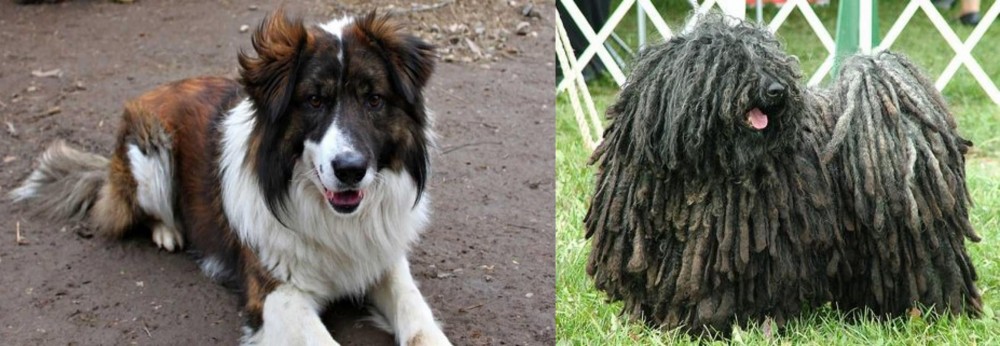 Aidi is originated from Morocco but Puli is originated from Hungary. Aidi may grow 16 cm / 7 inches higher than Puli. Aidi may weigh 12 kg / 27 pounds more than Puli. Aidi may live 3 years less than Puli. Both Aidi and Puli has almost same litter size. Aidi requires Low Maintenance. But Puli requires High Maintenance
Aidi is originated from Morocco but Puli is originated from Hungary. Aidi may grow 16 cm / 7 inches higher than Puli. Aidi may weigh 12 kg / 27 pounds more than Puli. Aidi may live 3 years less than Puli. Both Aidi and Puli has almost same litter size. Aidi requires Low Maintenance. But Puli requires High Maintenance
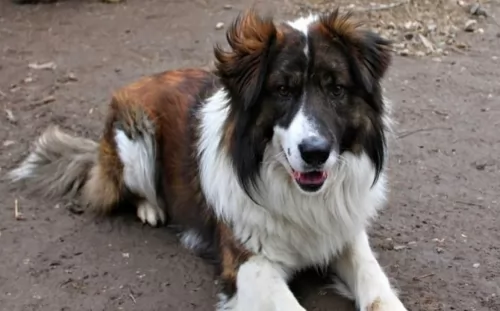 Aidi dog is also known as Berber dog. It originates from Marocco, where it has been kept to protect people from wild animals, strangers, and predators. It is considered that this breed has been utilized by the Barber tribe that is why it has a name Barber dog. Aidi has recently been protected by a club to keep its purity of the breed.
Aidi dog is also known as Berber dog. It originates from Marocco, where it has been kept to protect people from wild animals, strangers, and predators. It is considered that this breed has been utilized by the Barber tribe that is why it has a name Barber dog. Aidi has recently been protected by a club to keep its purity of the breed.
 The Puli’s history is ancient, going back about 2,000 years. It is believed that Sumerians used Puli-type dogs to herd sheep thousands of years ago.
The Puli’s history is ancient, going back about 2,000 years. It is believed that Sumerians used Puli-type dogs to herd sheep thousands of years ago.
Ancient excavations show signs of Puli dogs. It is believed that Magyar tribesmen brought Pulis to Hungary for their herding abilities. The Puli was registered by the American Kennel Club in 1936, and the Puli Club of America was formed in 1951.
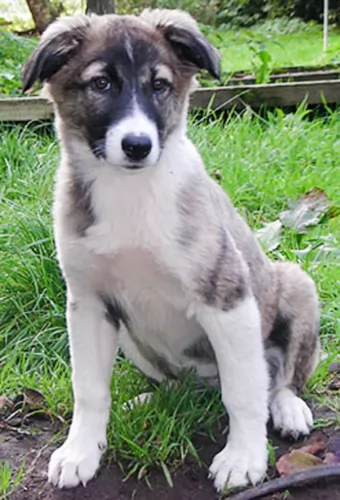 Aidi dog originate country is Morocco.
A weight of the Aidi dog is 23-25kg while the height is 53-61cm. Female dogs are a little smaller than average males.
Lifespan variates from 10-12 years, but it depends on every individual.
Litter Size of Aidi is 5-8 puppies.
Other Names for Aïdi are Atlas Mountain Dog, Atlas Shepherd Dog, Berber Dog, Chien de l'Atlas, Chien de Montagne de l'Atlas, Kabyle Dog.
Aidi dog originate country is Morocco.
A weight of the Aidi dog is 23-25kg while the height is 53-61cm. Female dogs are a little smaller than average males.
Lifespan variates from 10-12 years, but it depends on every individual.
Litter Size of Aidi is 5-8 puppies.
Other Names for Aïdi are Atlas Mountain Dog, Atlas Shepherd Dog, Berber Dog, Chien de l'Atlas, Chien de Montagne de l'Atlas, Kabyle Dog.
 The Puli is a medium sized dog from Hungary standing at between 36 an 45cm in height and weighing 10 to 13kg. He has always been a herding dog and his long,corded coat has been his trademark.
The Puli is a medium sized dog from Hungary standing at between 36 an 45cm in height and weighing 10 to 13kg. He has always been a herding dog and his long,corded coat has been his trademark.
The color of the coat can be black, white or cream but black is the color most seen with the Puli. The dog may well be a low shedder, but the coat is still going to need a lot of maintenance to keep it looking reasonable. It gets longer and longer and will need to be groomed to keep the cords neat and clean.
The Puli is an intelligent dog and it can be trained to respond to some simple commands. If the dog gets enough exercise, he can adapt to life in the country or in the city. As a herding dog he is used to being busy and will need walks, a run off his leash in the park and ball games.
They get on well with children and with other pets and are loyal to their owners and wary of strangers. They are highly active dogs these, and they just love playing games throughout their adult lives.
Because they are dogs which need a lot of exercise and space, they are more suited to life in the countryside as opposed to life on a small property in the city. They also make good faithful family guardians.
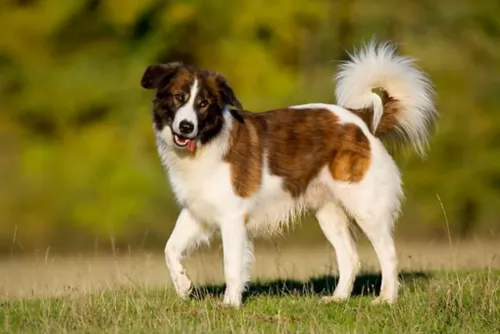 Aidi is an active dog who loves spending time outside in large space. They are not recommended for people who live in the apartments. They are very protective dogs, so they will be a perfect guard dog for large houses.
Aidi is an active dog who loves spending time outside in large space. They are not recommended for people who live in the apartments. They are very protective dogs, so they will be a perfect guard dog for large houses.
They are amazing with children. Aidi is a very gentle to small kids, and they tend to bond very quickly. It is very important to socialize them on time because they tend to be aggressive towards other animals and people if not properly trained. The best way to socialize them is to spend time with other pets since the early age.
Training of the Aidi might be tricky because it requires constancy and patience. It is also very important to be a firm but without any aggression towards a dog. Awarding and positive training is a must with this breed.
One of the most important things is that Aidi needs to spend a lot of time being active. They need a lot of space to be comfortable even though they do not need a lot of running.
They are very smart dogs who come from a history of guarding dogs, so proper socialization is a must. Aidi is not recommendable for the first time owners. They need a lot of practice and training to be a perfectly good pet.
 Your Puli is a self-confident, strong willed dog that is intelligent and can learn to be obedient and well mannered. They are also social and playful, and will love to be a family pet, being prepared to provide friendship and loyalty.
Your Puli is a self-confident, strong willed dog that is intelligent and can learn to be obedient and well mannered. They are also social and playful, and will love to be a family pet, being prepared to provide friendship and loyalty.
Because he has always been a herding dog, he takes his role of guardian and protector of his human family seriously. He makes a splendid pet if you’re ready to tackle the long coat which makes sure he doesn’t fit into the low-maintenance category.
 Joints, eyes, and skin problems can cause problems with the Puli dog. Hip dysplasia is a problem with many dogs that can cause pain and also lameness.
Joints, eyes, and skin problems can cause problems with the Puli dog. Hip dysplasia is a problem with many dogs that can cause pain and also lameness.
Check your pet over with grooming sessions and make sure both the ears and eyes are free of discharge and redness.
The coat is thick and the Puli will require you to watch his skin for bacterial infections which can be caused by a lot of itching and scratching. Other common canine health issues to look out for are cancer and bloat.
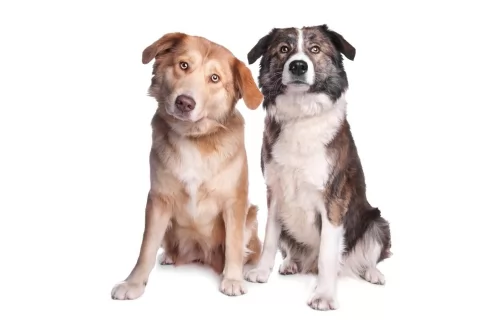 Feeding Aidi dog depends on the activity and size of each individual. Overall, for a medium-sized dog with average activity 2-2.5 cups of high-quality food would be enough, but if your dog is a very active dog, you should give him extra food. They love eating, so giving your dog healthy fruit and vegetables would be a very nice treat and addition to dry food. Olive oil is also very good for your dog’s coat and digestive system.
Feeding Aidi dog depends on the activity and size of each individual. Overall, for a medium-sized dog with average activity 2-2.5 cups of high-quality food would be enough, but if your dog is a very active dog, you should give him extra food. They love eating, so giving your dog healthy fruit and vegetables would be a very nice treat and addition to dry food. Olive oil is also very good for your dog’s coat and digestive system.
Puppies need to have more meals per day, so dividing 3-4 cups of food into 3-5 meals per day should be a good amount of food for your puppy. Also, regular intake of vitamins and minerals would do a lot of benefits for the health of your dog.
Aida is a very easy dog for grooming. They have a coat that really needs a little extra attention. Few brushing on a monthly basis with an occasional bathing couple of times a year would be enough to have a perfectly groomed dog. They don’t shed a lot, so little extra brushing during the shed period is all you need.
 Training and socialization is important for any dog and not just the Puli. Well trained dogs are a joy to have around – they are obedient and well mannered. The Puli is intelligent enough for you to train him yourself or you can have a professional trainer do it for you.
Training and socialization is important for any dog and not just the Puli. Well trained dogs are a joy to have around – they are obedient and well mannered. The Puli is intelligent enough for you to train him yourself or you can have a professional trainer do it for you.
The Puli is an athletic dog but you don’t want to start with any strenuous exercise with a young dog less than a year of age. Take your young dog for walks and give him some ball games. Only start more strenuous exercise later on to spare unnecessary pressure on the joints which could lead to hip dysplasia later on.
Every dog needs to be brushed and groomed to ensure its health. A dog like the Puli will need additional grooming because of the long dreadlocks for a coat. Many Puli owners prefer to have the hair cut short.
The coat of the Puli luckily doesn’t shed much but the coat, if you keep it long, will require a special wide tooth comb. You’ll need to check inside his ears, check that his eyes are bright without any discharge and also trim his nails.
You will have to check inside his mouth too. He can’t tell you if he has a rotten tooth that is painful and causing him to be sick. You need to regularly check his teeth.
It is important to know how much to feed your Puli. A healthy diet is so important for good health and a long life. All dogs have different appetites depending on their age, their breed, their size, the season of life they’re in and their activity levels.
It is better to feed your dog twice a day as opposed to one meal a day to avoid life threatening illnesses such as bloat. There are excellent commercially manufactured dog foods, but also bad ones, so you want to make sure that the kibble you choose is a high quality one with lots of vitamins and minerals.
You want to give him some home-made food too, keeping it simple and uncomplicated – the way dogs like it. Boiled chicken, brown rice or pasta and spinach, sweet potatoes and carrots are a healthy choice for your pet.
Chop it up and add it into the dry kibble a couple of times a week. Some raw meat added in from time to time will contribute to him being healthy. Never leave him without a constant source of fresh, cool water.